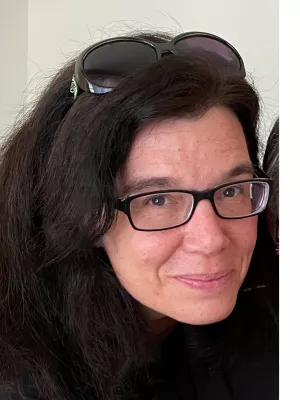
Christine Wamsler
Professor, Docent, appointed Excellent Teaching Practitioner (ETP)

Transformative Climate Resilience Education for Children and Youth: From Climate Anxiety to Resilience, Creativity and Regeneration, Literature review conducted for the ERASMUS+ Project 2023-1-SE01-KA220-SCH-000158705
Author
Summary, in English
This report has been written as part of the ERASMUS+ project CLARITY. The aim of CLARITY is to enhance educators' skills for nurturing resilience and reducing climate anxiety of learners through trauma-informed and creative approaches that link inner and outer dimensions of change.
Sustainability and climate education tend to focus on environmental facts, whilst little room is given to the human dimension of climate change and fostering transformative change (Bentz & O’Brien, 2019; Wamsler et al., 2021). With climate change generally being understood as an external, technical challenge that needs fixing, inner capacities and potential needed for addressing human mental health impacts and societal challenges related to system-wide transformation are hardly considered (ibid).
Consequently, children and youth increasingly experience climate anxiety, associated overwhelm and denial (Hickman et al., 2021). CLARITY aims to address this gap.
Based on the European GreenComp Sustainability Competencies Framework (Bianchi et al., 2022) and an inter- and transdisciplinary co-creation process, we will develop an adapted competency framework for transformative climate resilience education for children and youth, policy recommendations, an innovative educators’ toolbox and train educators in implementation. Through online hubs we will support related knowledge exchange and shifts in underlying paradigms and approaches.
Sustainability and climate education tend to focus on environmental facts, whilst little room is given to the human dimension of climate change and fostering transformative change (Bentz & O’Brien, 2019; Wamsler et al., 2021). With climate change generally being understood as an external, technical challenge that needs fixing, inner capacities and potential needed for addressing human mental health impacts and societal challenges related to system-wide transformation are hardly considered (ibid).
Consequently, children and youth increasingly experience climate anxiety, associated overwhelm and denial (Hickman et al., 2021). CLARITY aims to address this gap.
Based on the European GreenComp Sustainability Competencies Framework (Bianchi et al., 2022) and an inter- and transdisciplinary co-creation process, we will develop an adapted competency framework for transformative climate resilience education for children and youth, policy recommendations, an innovative educators’ toolbox and train educators in implementation. Through online hubs we will support related knowledge exchange and shifts in underlying paradigms and approaches.
Department/s
- LUCSUS (Lund University Centre for Sustainability Studies)
- The International Institute for Industrial Environmental Economics
Publishing year
2024-04-09
Language
English
Full text
Document type
Report
Publisher
Lund University
Topic
- Social Sciences Interdisciplinary
- Educational Sciences
Status
Published